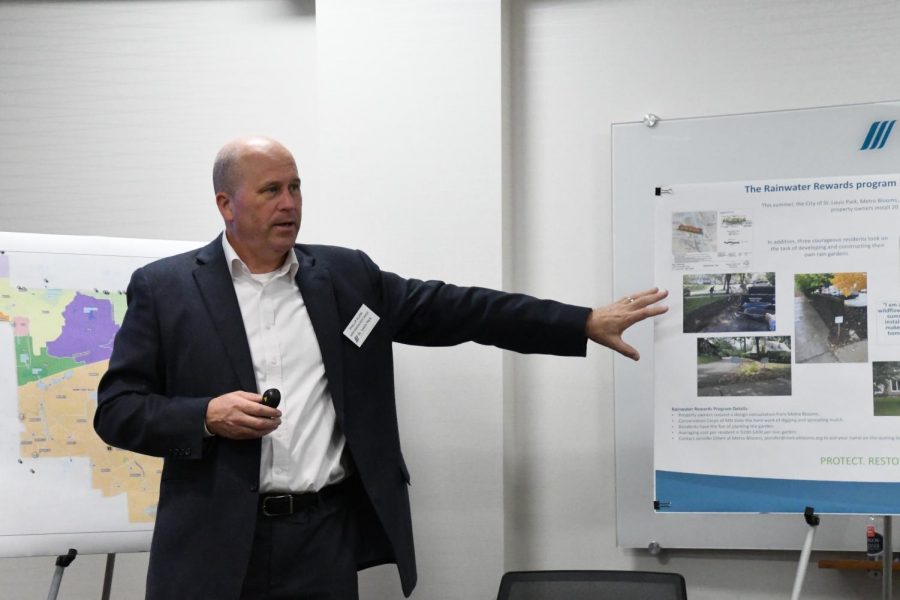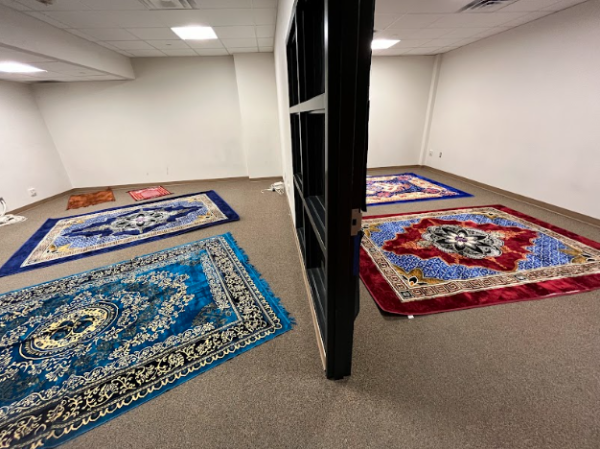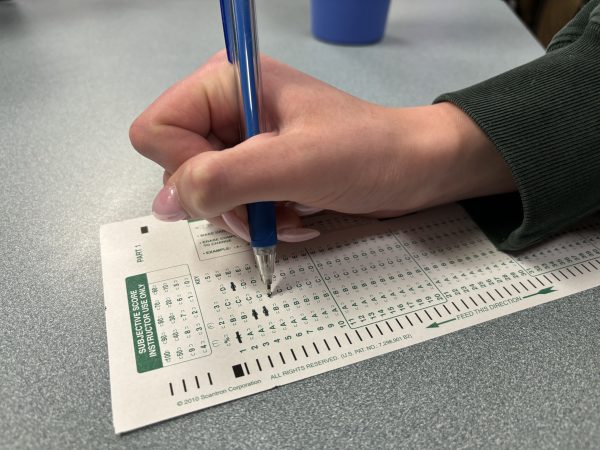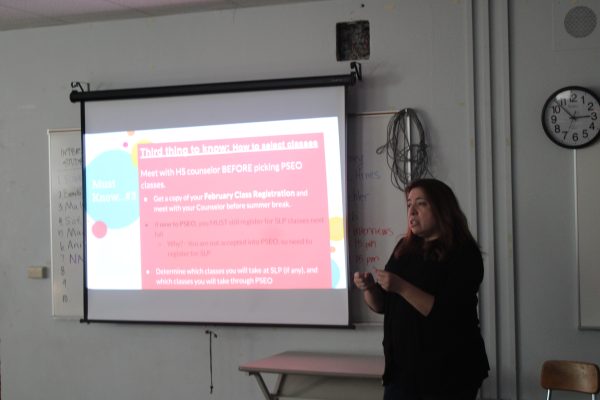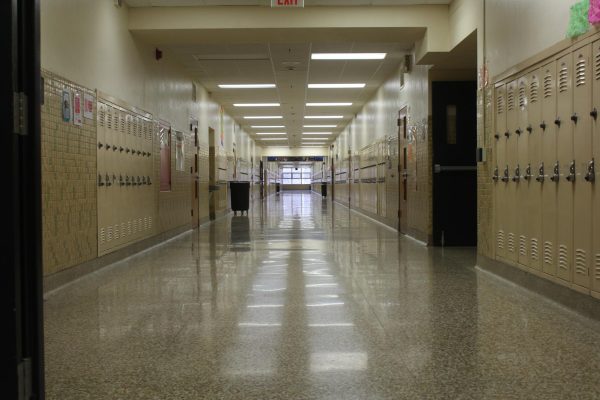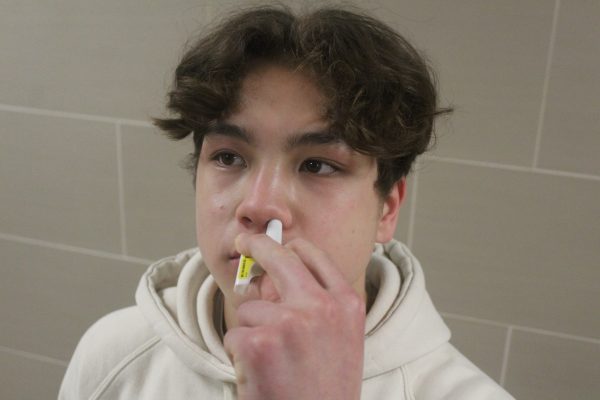Rainwater management program revitalized
City updates outdated plan
Senior engineering project manager Phillip Elkin talks to community members at the Water Plan meeting. Elkin referenced the poster with information about rain gardens and their effect on the St. Louis Park community as a whole.
December 16, 2018
During the surface water plan meeting, senior engineering project manager Phillip Elkin said the plan is a required 10-year checkup and revitalization of the city’s rainwater management program.
“We analyze (the watersheds) for flooding as far as water quality coming into and leaving the city. As a part of the process we update our policies, towards the direction we are going,” Elkin said.
Additionally, Elkin said this required reassessment will account for changes in climate and rain patterns and tailor the plan to present conditions.
“When this first started, there was an emphasis on building ponds and now it has shifted into more infiltration and guidelines towards recharging the groundwater and matching water quantity as much as quality,” Elkin said.
According to the drafted plan set to be released in 2019, there will be a focus on sediment removal from ponds as well as general upkeep and maintenance of the watersheds throughout St. Louis Park.
Science teacher Patrick Hartman said due to water runoff, it is important to have rain gardens to collect the rain and reuse the runoff in the soil.
“The rainwater sewers certainly go into bodies of water and the idea with the rain gardens is it collects the rainwater and naturally filters and percolates through the soil,” Hartman said. “Any of the sediment that would be running into a body of water is actually being trapped in (the rain gardens) and it is going through a natural process to assimilate the soil.”
According to sophomore Zoe Frank, promoting sustainability is important because it helps ensure progress toward halting climate change.
“Agriculture is actually a huge contribution to climate change and greenhouse gas emissions so that is why sustainable agriculture is important and rain garden help promote sustainable agriculture and help reduce our greenhouse gas emissions,” Frank said.
Water resources manager Erick Francis said the most important takeaway from the plan is that residents can and should educate themselves on the topic.
“I think the big thing is to educate about stormwater, this (plan) is a guidance document to inform not only city staff but the residents of what resources are in the city to define the resources, functions, and values,” Francis said.
Included in the drafted plan is The Rainwater Rewards Program which outlines a specific method for individual families and households to help the local government in filtering the rainwater through the installation of rain gardens.
According to Elkin, community members should be informed of rain gardens and stormwater management in order to further the clean water initiative.
“I would like everyone to know about stormwater management in the city. Building rain gardens in your own yard to treat stormwater through infiltration and putting in plants that absorb a lot of water and nutrients so it doesn’t get into our stormwater system,” Elkin said.
Hartman said while the plan to reduce sediment accumulation in watersheds, as well as the implementation of rain gardens is a positive change, the plan will not completely eliminate it.
“We are still going to have problems with runoff, just because we have roads and stuff and you get a lot of dirt and stuff on the roads. I think that anything that reduces runoff into streams is a good thing because it’ll make the water clarity better and it is better for the organisms as well,” Hartman said.
According to the city of St. Louis Park, the agency review period will end Dec. 20.



